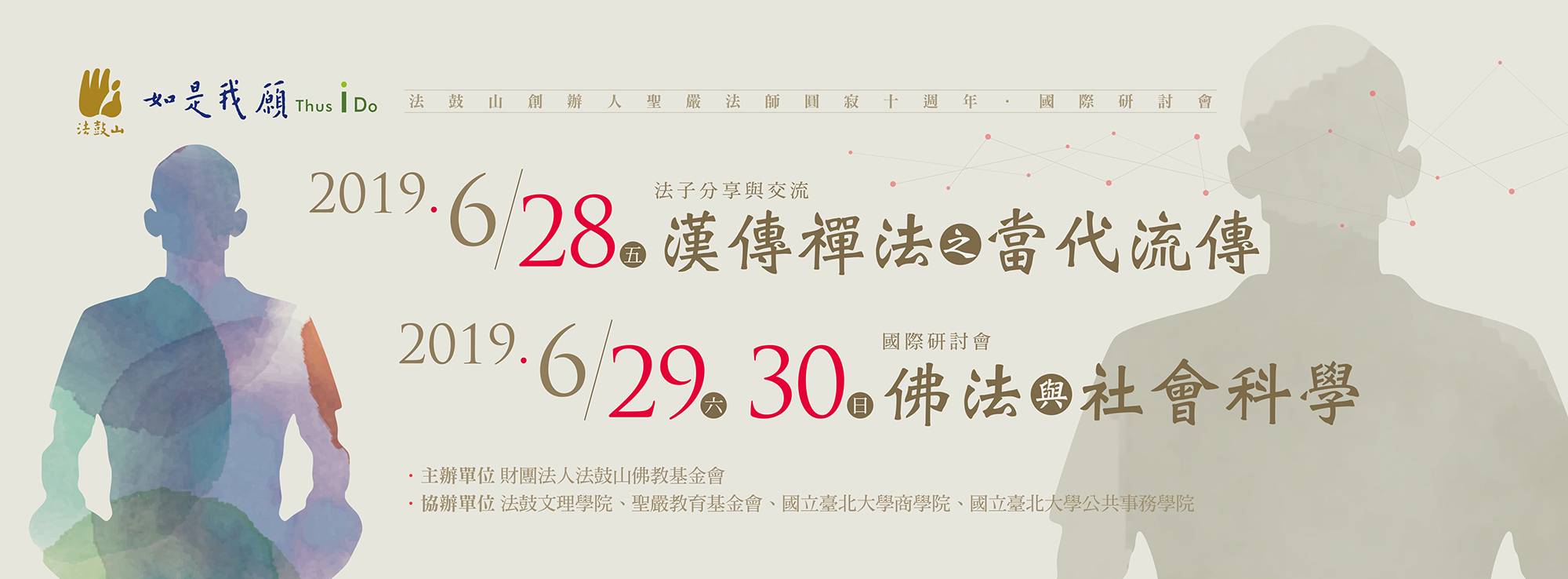初探心靈環保中的心五四對經濟行為利他傾向之影響
謝俊魁、顏美惠
聖嚴法師提出實踐心靈環保理念的方法:心五四(四安、四它、四要、四感、四福),至今已二十年(1999~2019),但人們認識心五四、進而實踐心五四之後,其行為是否受到影響而有所改變,目前尚未有學者對此進行研究。本研究以「滾雪球抽樣法」,透過網路問卷,於2019/5/8~5/13取得2037筆有效問卷。作為初探,本文先就其中皈依法鼓山者之1521份問卷為樣本,探討「心五四運用密度(在日常生活中運用心五四之觀念及方法的頻率)」、「修行密度(『穩定持續地修行或經常參加共修、課程』之自評分數)」、「所得(個人平均每月所得之級距)」這三者對「經濟行為之利他傾向(五個相關問項的總分)」有何個別及綜合之影響;主要發現如下:(1)心五四運用密度、修行密度、所得,都對經濟行為之利他傾向有正向的影響力;且任一者之影響力並未完全被另二者所取代。(2)修行密度愈高者,心五四運用密度對經濟行為之利他傾向的正向影響力愈大;同時,所得對經濟行為之利他傾向的正向影響力則愈小。(3)心五四運用密度愈高者,修行密度對經濟行為之利他傾向的正向影響力愈大;同時,所得對經濟行為之利他傾向的正向影響力則愈小。(4)上述發現在控制年齡、性別、教育程度、居住地等因素後仍然成立。
關鍵字:心五四、心靈環保、經濟行為、利他傾向、聖嚴法師、佛教經濟學
A preliminary investigation of how the Five Spiritual Renaissance affects the altruistic tendency of economic behavior
Chun-Kuei Hsieh; Mei-Huei Yen
It has been two decades since Venerable Sheng Yen proposed the Fivefold Spiritual Renaissance (Four Fields for Cultivating Peace, Four Steps for Handling a Problem, Four Guidelines for Dealing with Desires, Four Practices for Helping Oneself and Others, Four Ways to Cultivate Blessings) as the method of practicing the concept of Spiritual Environmental Protection. However, to date, no empirical study has been done on the effect of the Fivefold Spiritual Renaissance on human behavior. To address this gap, we conducted an online survey using snowball sampling and obtained 2037 valid questionnaires during 2019/5/8~2019/5/13. As a preliminary investigation, we focus on a sample of 1521 questionnaires to which the respondents are Buddhists in Dharma Drum Mountain and investigate how the frequency of using Fivefold Spiritual Renaissance, the state of regular practice, and the income simultaneously affect the altruistic tendency of economic behavior. The main results are as follows: (1) the frequency of using Fivefold Spiritual Renaissance, the state of regular practice, and the income all have a positive influence on the altruistic tendency of economic behavior; and the influence of either is not completely replaced by the other two. (2) The higher the state of regular practice, the greater the positive influence of the frequency of using Fivefold Spiritual Renaissance on the altruistic tendency of economic behavior; meanwhile, the positive influence of income on the altruistic tendency of economic behavior is smaller. (3) The higher the frequency of using Fivefold Spiritual Renaissance, the greater the positive influence of the state of regular practice on the altruistic tendency of economic behavior; meanwhile, the positive influence of income on the altruistic tendency of economic behavior is smaller. (4) The above findings are still established after controlling for factors such as age, gender, education level, and place of residence.
